Grow It Forward
A Polk County program teaching students to make connections with nature and people
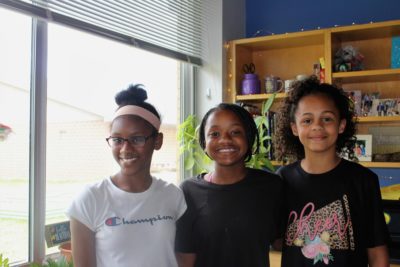
Over at Polk County Middle School, sixth-grade science teacher Andrea Hill has created a program designed to engage her students with nature and with the community.
After students returned to school in-person following a long period of COVID isolation, Hill noticed that there was a serious lack of engagement from her students. In particular, she noticed a trend with her highest scoring students becoming apathetic towards school. These high achieving but low engagement students were the inspiration for this community garden project.
The project is called Grow it Forward. At its core, it’s a gardening project that aims to teach kids about how to build, create, and care for a garden. But underneath the surface, there’s a deeper meaning to this undertaking. Hill says the purpose of this initiative is to, “help [the students] build peer relationships, relationships with their teachers, and relationships with their community… so that they make better connections with the material and have an overall better attitude towards school.”
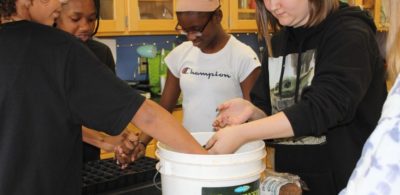
Hill’s efforts are certainly not in vain. Studies show that being in the outdoors leads to more engagement and better focus in children. It also gives the students a sense of ownership and responsibility. Hill is hoping that with the students as the main decision-makers in this project, her goal is, “…to have them walk away with a sense of ownership in the school—to feel like they created something, they grew something, and to also grow relationships they otherwise wouldn’t have.”
Learn more here about how the outdoors influences child development from local childcare professional, Vanessa Gilliam.
If we can give them tools they can use at home, in the community, and in the world, then we succeeded at something,” says teacher Andrea Hill
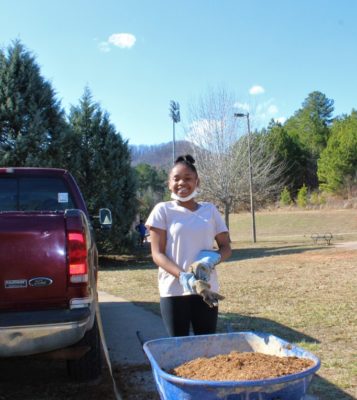
Pam Torlina, Conserving Carolina’s Southeast Stewardship Manager, and Liz Dicey, Conserving Carolina board member, have been providing support for the program from the beginning by offering lessons, guidance, and expertise on gardening and plants. Torlina says, “The students have learned about what plants need to survive, they’ve decided what type of garden they want to grow, they’ve learned about the difference between native and non-native plants and their importance in the ecosystem, and they’ve learned about soil and compost.”
So far, the students have built seven raised beds and a window box planter. The program received funding for these beds through two different grants, including an AG in the Classroom grant from the NC Farmers Bureau and a Learning Links grant from Community Foundations. The students decided the best location for the beds, and were responsible for getting permission from the school to place the beds there.
At a recent work day, Torlina and Dicey helped students fill the beds with two-year-old composted horse manure and shavings that were generously donated by Deer Meadow Farm.
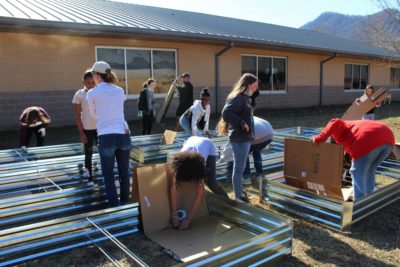
They also had a work day to start the seeds of vegetables, herbs, and native wildflowers that the students chose, both in seed trays and directly in the beds. Eventually, they’ll help fill the beds with those plants and the students will learn how to mulch, water, weed and care for their garden.
Pam Torlina has high hopes for the program. “For me, the desired result of [this program] is to educate the students about their connection to everything else in the world. I hope that the students gain an appreciation of the natural world, an understanding of where their food comes from, the importance and role of native plants in the environment, and a connection to the ecosystem that they are a part of.”
When asked what plant they were most excited to grow, one student answered enthusiastically, “All of them!” It looks like this program is on the right track.
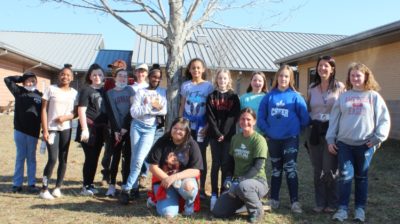
Author Allison Houtz is serving as an AmeriCorps Project Conserve Communications and Education Associate with Conserving Carolina.